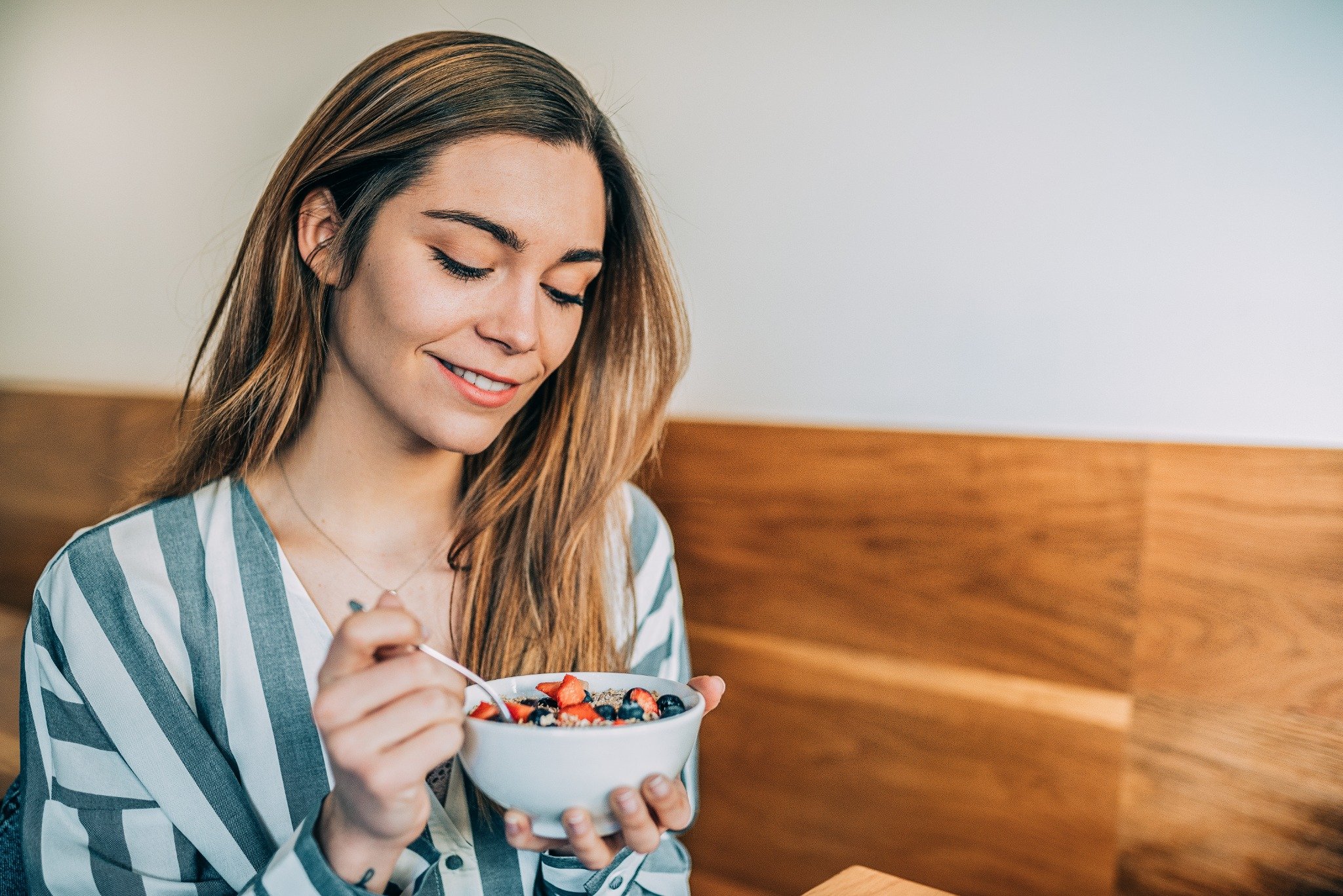Anxiety and depression are among the most common mental health struggles worldwide. While therapy and medication remain important treatments, more people are beginning to look at lifestyle choices—especially food—as an additional tool for recovery. Research now shows that what you eat directly influences your mood, brain chemistry, and even your resilience to stress.
This is where a diet for anxiety and depression becomes more than a trend; it becomes a science-backed path to healing. The right foods provide nutrients that stabilize mood, support gut health, and improve energy levels. When applied consistently, dietary changes can feel like giving your brain the missing fuel it needs to function at its best.
Why Food and Mood Are Connected
Your brain and body are in constant conversation, and food acts as the language they use. Nutrients like vitamins, minerals, amino acids, and fatty acids shape the production of neurotransmitters such as serotonin and dopamine. These chemicals regulate happiness, focus, and calm. A poor diet lacking these essentials can tip the balance, contributing to feelings of anxiety and sadness.
On the other hand, adopting a diet for anxiety and depression ensures your meals become allies for mental well-being. Researchers have found that dietary changes can reduce symptoms as effectively as some medications in mild cases. You can read more insights on this connection in Food & Mood.
How a Balanced Diet for Anxiety and Depression Shapes Brain Health
The brain is constantly influenced by what you eat. A balanced diet for anxiety and depression provides the essential nutrients that regulate mood, sharpen focus, and keep stress levels under control. Foods rich in omega-3 fatty acids, B vitamins, and antioxidants directly support neurotransmitter production, making it easier for your brain to create serotonin and dopamine.
Without these nutrients, mood imbalances can become more severe. By focusing on whole foods instead of processed snacks, you give your brain the stable energy it needs to function well. A thoughtfully designed diet for anxiety and depression acts like natural medicine, offering a foundation for mental clarity and long-term resilience.

Nutrient Powerhouses That Fight Stress and Sadness
Building a diet for anxiety and depression isn’t about restriction; it’s about inclusion. Here are some of the most effective nutrients to focus on:
Omega-3 Fatty Acids
Found in fatty fish like salmon, mackerel, and sardines, omega-3s improve brain function and reduce inflammation. Several studies show people with higher omega-3 intake have lower rates of depression.
Magnesium
Magnesium-rich foods such as spinach, pumpkin seeds, and almonds help regulate the nervous system. A deficiency often leads to irritability, fatigue, and anxiety.
Vitamin B Complex
B vitamins—especially B6, B9, and B12—are crucial for neurotransmitter production. They help your body convert food into energy and reduce brain fog. Sources include leafy greens, eggs, and legumes.
Antioxidants
Berries, nuts, and dark chocolate fight oxidative stress, which can damage brain cells. A diet rich in antioxidants can reduce the physical toll of chronic stress.
For a breakdown of trending ingredients and their role in brain health, check out Food Trends.
Why Consistency Matters in Building a Diet for Anxiety and Depression
Quick fixes rarely work when it comes to mental wellness. Consistency is the secret ingredient behind a successful diet for anxiety and depression. Skipping meals, relying on sugar, or turning to caffeine for energy creates imbalances that worsen mood swings. But when you commit to steady, nutrient-dense eating, your body and mind begin to thrive.
Small, repeated habits like starting the day with oats and berries or choosing salmon for dinner build lasting stability. Over time, these choices reinforce mental resilience. Following a structured diet for anxiety and depression daily allows nutrients to accumulate in your system, strengthening both physical and emotional health.
Smart Snacks to Keep Anxiety at Bay
Snacking often gets a bad reputation, but the right snacks can stabilize blood sugar and prevent mood dips. A good diet for anxiety and depression includes snacks high in protein and fiber that fuel the brain.
Some smart options include:
- Apple slices with almond butter
- Greek yogurt with blueberries
- A handful of walnuts or pumpkin seeds
- Whole-grain crackers with hummus
These combinations provide slow-releasing energy and essential nutrients. Instead of reaching for processed treats that spike and crash your blood sugar, choose snacks that keep your mood steady. More snack ideas can be found in Smart Snacks.
The Gut-Brain Axis: Why Digestion Matters
It might surprise you, but your gut health is a major player in your mental health. Known as the gut-brain axis, this system allows signals from your digestive system to influence your emotions. Around 90% of serotonin—the “feel-good” neurotransmitter—is actually produced in the gut.
That means an imbalanced gut microbiome can contribute to mood swings and anxiety. A fiber-rich, probiotic-filled diet for anxiety and depression supports a healthy gut, leading to more balanced moods. Adding fermented foods like yogurt, kefir, sauerkraut, or kimchi can help restore the right bacteria. For more science-backed tips, explore Gut Health.

The Role of Superfoods in Mental Wellness
Superfoods aren’t just a marketing buzzword; they are nutrient-dense foods that deliver concentrated benefits. Adding them to a diet for anxiety and depression provides extra support for brain health.
- Blueberries: Packed with antioxidants that reduce inflammation in the brain.
- Chia seeds: Rich in omega-3s and fiber.
- Turmeric: Contains curcumin, which has antidepressant and anti-inflammatory properties.
- Dark leafy greens: High in folate and magnesium.
Simple swaps like adding chia seeds to your smoothie or sprinkling turmeric on roasted vegetables can go a long way. Explore more superfood options in SuperFoods.
Supercharging Your Routine With a Diet for Anxiety and Depression
Adding powerful foods to your daily meals can transform how you feel. A diet for anxiety and depression should go beyond the basics and include superfoods like chia seeds, blueberries, and turmeric. These nutrient-dense options target inflammation and oxidative stress, two silent drivers of mental health struggles. Even simple upgrades, like replacing sugary snacks with walnuts or adding leafy greens to your plate, can make a noticeable difference.
Pairing these foods with healthy lifestyle habits like exercise and meditation further enhances results. By viewing your meals as part of a bigger wellness plan, a diet for anxiety and depression becomes not just fuel but a powerful tool for recovery and emotional balance.
A Practical 3-Day Meal Plan
Here’s a sample diet for anxiety and depression meal plan to show how simple and delicious these changes can be:
Day 1
- Breakfast: Oatmeal topped with blueberries and chia seeds
- Lunch: Grilled salmon with quinoa and spinach
- Snack: Apple slices with almond butter
- Dinner: Lentil soup with turmeric and whole-grain bread
Day 2
- Breakfast: Greek yogurt with walnuts and honey
- Lunch: Brown rice bowl with chickpeas, roasted veggies, and tahini
- Snack: Carrot sticks with hummus
- Dinner: Baked chicken with sweet potatoes and broccoli
Day 3
- Breakfast: Scrambled eggs with spinach and avocado
- Lunch: Sardine salad with mixed greens and lemon dressing
- Snack: Pumpkin seeds and dark chocolate square
- Dinner: Stir-fried tofu with ginger, garlic, and kale
Lifestyle Habits That Amplify a Healthy Diet
While food is powerful, it works best alongside other healthy lifestyle choices. Regular exercise boosts serotonin and endorphins. Adequate sleep gives your brain the rest it needs. Mindfulness practices like meditation reduce stress hormone levels.
Pairing these habits with a nutrient-rich diet for anxiety and depression creates a holistic approach. It’s not about perfection; it’s about small, consistent changes that add up.

Nourishing the Mind Through Food
The journey toward healing anxiety and depression is deeply personal, but food can play a powerful role in that process. A well-planned diet for anxiety and depression doesn’t just feed your body—it nourishes your mind. From gut health to superfoods, every choice on your plate can influence how you feel.
When combined with therapy, exercise, and mindfulness, dietary changes create a foundation for lasting mental wellness. Instead of thinking of food as fuel alone, see it as medicine—small doses of healing with every bite. Your next meal can be the beginning of greater balance, calm, and joy. You can find more guides, recipes, and health insights at The Daily Whirl main website.


